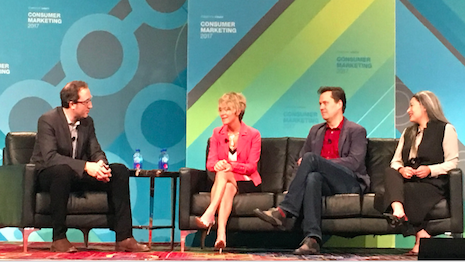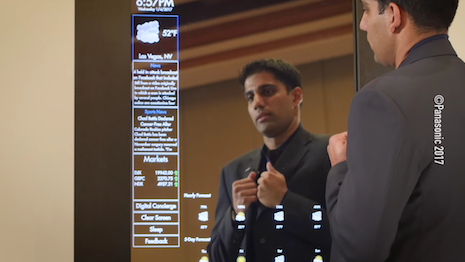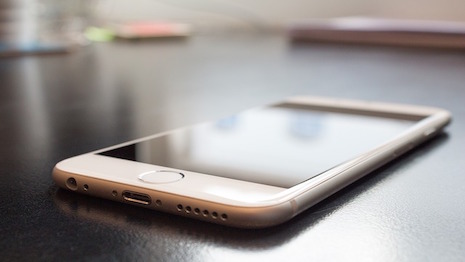NEW YORK – The future of marketing may see consumers desiring a break from the glut of content that comes through the various digital channels of their lives and moving towards a simpler, cleaner and more curated digital experience.
Speaking at Forrester’s Consumer Marketing Forum 2017 on April 7, a panel of Forrester analysts spoke about the future of marketing and how the current digital climate may transform in the next 10 years. One of the most important ways marketing might change is a move towards more curated and algorithmic marketing messages and away from the massive load of content coming into consumers’ lives at any moment.
“There can be too much clutter and complexity for the user,” said Shar VanBoskirk, vice president and principal analyst at Forrester. “There will be a smoothing out in the experiences.
“Why is it in a world where you have so much choice, there’s only one search engine?" she said. "We have so much but we really crave a simpler life.
“Marketers can anticipate that desire for a simple experience and smooth out the process.”
Digital curation
In the current digital landscape, new content is being produced every second at an astronomical rate. With every tweet, post, video and piece of content produced, both by brands and consumers, individuals’ social media channels are being absolutely overloaded with noise.
For modern customers, it can be difficult to sift through the clutter to find the things that they want. This extends to brands as well, who are trying to find a way to cut through the noise and get their message in front of the customers who want to see it.

The Forrester future of marketing panel
This was part of the focus of a wide-ranging panel on the future of marketing from three Forrester analysts: Ms. VanBoskirk, James McQuivey and Fatemeh Khatibloo.
In the opinion of these analysts, the future of marketing may see the marketer becoming the filter between the consumers and the glut of content that floods their timelines.
We may increasingly see consumers gravitate more towards a curated, concierge-like digital experience with mobile applications that intelligently manage their digital lives and inform them of the content they want to see.
This will be a boon for marketers, since they will know that customers will be seeing the message that they want them to see.
Future of marketing
This concierge-like approach has already begun to take hold in the world of luxury marketing. Luxury consumers are used to being treated like royalty and therefore are more conducive to this type of curated digital marketing than others.
A great example of this type of experience came from a partnership between IBM and Panasonic when the two release a mobile app that acts as a personal assistant for high-end travelers.
Panasonic and IBM Watson are working on a new way to improve the traveling experience for consumers with a digital concierge service that lets them access all hotel services from a unique cloud-based service (see story).
This type of technology can even expand to actual concierge services as well.

Panasonic's personal concierge service
Retailers including JCPenney, Best Buy and Neiman Marcus have implemented mobile visual search into their apps with great success, enabling users to take a picture of a desired product and subsequently search the brand’s inventory for the same – or similar – piece. While many other retailers will leverage this technology within their own digital channels this year, marketers are also likely to find new use cases for mobile visual search, such as placing it within hotel brands’ concierge platforms for enhanced guest service (see story).
Ultimately, this is all leading to a potential future technology that Ms. Khatibloo calls “the algorithm of me,” an algorithm that will fully understand an individual user and curate entire experiences around her preferences.
“We are still a good 10 or 15 years away from that, though,” Ms. Khatibloo said.
{"ct":"5ZOv6OPtZ8InWwMTZBUFbE6c3Pm7GLPrIRyt7JXXhSVyt0Bu34eA\/qbqk5vnvpD26xIDzgIIaMGfv1gko8vv29xk5\/jtBMSbUD6R7uGJvKRJBf43cHgYeNWhPEKsXAODLGU5B821YSrTdKoa\/YY3eG+jgpV44bp+Ed8g7Ayyu0JNITN46Qxz2NzH5NWaQJYEJby3w5SqPQMqeLkoOxO4wi4MwcjDwa5edg0TWewNoAQRidUXBCnGwFW5IU4CY3ikdETDwWCpXc7dP1qiPxcjWoD9XhkRWlN+t8rYVpRqsIm06E\/87yHuhVN+jKZsP6HOGc09XSHJGMF6klDEtyZYtUMNjNC+SHEPBEqvAEer71NJ+cdpHMLm64FafUgELcCVV\/+o5lH49TtdGonVRTDw1VYeIqXrBc\/ItRBkEGodh9IlgbjVDu\/mtdpqHmTMQpPpz\/\/KFKJkj4C9CgJgAB9axmmvOAvrTvuxuZwWkenAf9Ue9P\/dE5g\/mlreyIKdZs0oQdZLt5H6D0lE6hiI\/DrzmE9erHNcWfOIjOr6kmuU42zqG7uG8rGCArLDbpLzmwQNS0rpNYcu3yieA+dJP7b9IYzw9MbVl\/WF6DW5\/B3tN25Zy19KQWXbkgzJ8HdV0bQReylqXW+G4Biyu\/0d1Habni99nMju52Vd3ClIix4ArRIKwxwkpDOyIz5rxuIq0aNYSqBqwpTuPwWjv\/T1vwxCgAkjYWE1UCUONKxHBwuehA1DEtOGfjQLCUTXWDVoXYYuuBeoj3lKBiPji06Vxd\/rC86XFuyHM3I7EpkcFlCCrQeBAYSUA67kv6gHcy3+NHgEBvjftBikcILz2r78I1O7HGxsOYaz8OAYWGPbeU25Uf6xCl5nEi8fxpef6c8dCoPVvsIrVwkcWDQFlGa\/QkORTVuevlTSoDcscht9hdKznSg2epHEbBgsvi7j6yvq+MaBwud7mQEFP8KW6xQp5h06paq+aUoD2r+CEwnU4LGeiGThtcY3ljP43uY6gr1QM\/k7g1eJ7FM5DCopbh6iUgiAIECTOBoCGPnQAqr9782vGiE2VNWyg1MN3R6dVpyTs2ynL99K2mUJ2\/1PDNAqRRI1zyhlTLff9W5o3+3oHmkZ3fiaJslsUv7Gw0VkFMclwe+TjYFLKKOoQAoJafEjjWcXkmsBAgMIRTE4joagVe4+nx9EWDaaCUTCTjDH7s70LaqWalZvS3NkSSjKUHu+\/zb7PD4FJKQN6cfuP6Gk9g5cj0kClb0vSW\/F0IyfCM9Ks0RskXwnZzGVQNlzA1sg4valbUAIwasl2weRea2tVHSPE9dJ23oFxtEOipmbs\/DRok+Nkec5hkSWezNKLtd6S8gmlGhox01Bi8eUj3D1Skowe0FsJrlbIZtk+qb2lD0KRGR0YeTLl\/tE+AftLcwrNNmgH\/QcFUNh9YNK6FSmmPpNyR+dN+WwBnXwWVWGnBPy9mDOy\/HPYYv\/iYSFf+cQKHValWpJcAT3i7jDxDJ7yEQCr8JO7k2GK3e9\/RRP9ewSgbj6740vfr13ETWbknMrjWYF9D7qcBx6XjXqZBsaSdvtXbWSLQeGjp9jPyu3xGrpp8i0vSAo7tatZIIQkSw6U3Z3zRlz5PLN8AYiIJbuwUUYi6HkvoNTReXkSFYppKi4tLwRNuVRYd0160lUuMmu9yQTen0aR0tUhUu4GSOclo\/QP5TmJUbtRda+vyL+R9CmQYzjTW8wPayjbiraxQiR1NOmDsMUxkOUc80inziZzOoZHUKXdHfvv3BKXYHuqtVvsv60umWq7JmneQ7AU1Tkn22J0fQg20Wi\/i5+z7Ns2xkK\/13ijJM3Z0Ei4\/d4d2ISBF310qUzrtnbtpPBCUnZe1a52toKgztAEPngK\/c9GLpzRFEpZUe7ePZ0rW7RWEjL9DTWBl7rAtZ+IPFgew7anNDzuAlHKH6j3wi6qDI23i0bxss9KapQot2JwyoKqiPxfhacQ5EXYwz400SDAo+YKiWBZ3qL2bQUSPRFvYEIAAYVkU1IOE6+02tSEpy1LR+lbB0a5XJDLh4\/jhnDXkJKNKfvzcoQNoLj1gNrp0bY3os4PqUIvjToyDR2lV8QUyPODIWQvm0zNzo\/F\/ZDmQ9X+x\/Sk500nMFr4jIrzag5ni0mrFu8L0zE5f3Jn+WXYmRIALk6maCMD1MOPNSAaU9UfCT4jAB8wiaVivzvttioIquj2SI5AHtvRb9dPp1EWM8hZg9zBJ8f3w9hQk9LsjMZoDQ27GxNtiGcNrKNIxju4z2DdDpsQv9aRttks7lM1eLAWz2gyQJxXEo2LEdbI8LKmr+LQ06AiRS6vFQ6CtWmrXzx7wksPSl9GuSlnSfasHfJ4gt8wjgAgSIaD2B6TTBMZPUTfeRdZB3yVCZC3GOq8WhXT617zaOsa\/xfejdudPKLERXd3evmOx7L55X5ZB+HtBCcy2f84bcDN6kW7AQoYfQpINNIDkAkh9fmNKAQgj\/HX2BDoMAYNqi0q+MewU3xr\/0P9Bto0H9Ht\/HamlcVGYoZKQgF+fNBD1wQrX8pooqxF+4honDusOaMChVAISl5KEmp25Rz25wh+mOX1sVoc8eNasYhmZjTmG8uI\/6\/JZAyg5Sxke60VkPdH60ma5oVzi7Cz4xBqtuBI0nsSxpovVEWP2EaDlYNo4NARnHOuL6XYFHnBInEibgjnro1un36JxkyzNMiCRRplEXIkpbLt8hcxKIY6P093KGY2R9N8Pkc16icQBWqinq8q2N4td4JtxqK1apcheIscwNYyBcsZBHJpbXMgCoZW56mmgF4\/ZItENJqxDzXc7WC\/amhZSPyRHQer\/WqXsnVUqgW9mts2AlAwyH38YJNriB3MjAOseZdg4pcJbyYqcpB2ixnWVHj4s0aFpQP9XRm3JJ\/gU+JMc9mJa\/zuYcW0uDrr+zwZ4jseqhuU3eMLAk8uy+X0x\/4H2JGpsPNXmrtzNk4cD5ISDO+mwSF51rg4ZBmiXnTkitg3NYLGSsf1XD2wehbEej7\/wnHtdMd6PGrfVJ0MLORgXJ5uJaQ3JSGFgIGiOh87Kd3za7uYUJvWuCJL4+dELn0Nr0X6lF\/sd\/bNAi2IpolZThjZLVR5iQHF2BrQKqXB91PeLJujQuK73\/LEWDcY2ODM4q0BRJ\/8RpnbeTOJHX2YeZ1jlQc+IE\/ch3g0ZOk+JmyEzgbhTBeD53Y9AvcojqXfnsmMB+WfllQEAkqPfxM7gIr0PQUdF1ZB4S0UyY1PKEEvaEW1Xd534oz9rCwYYQuamZj2iL8STfAV5ejby5rNLc0mPJglSVu2UGXAfrjMVddvWDQ3Sq666RVFcHIJ5kX7pS5ro3pAxtkG9VjowLI0dx4uWU978KknLncT+4CasM0jeLW4hERXx2Klr2GX6iZFB7wdcqxj8vaoZllvH3X7o\/CW7AOhf2SCMAEqc9bKNG03kGYsBG5WG\/qGR7J0GS4uVEDnywrlqUrcTm35ifMTFabEjWVQfERFKHVMabQp7TlpnvBL4TlGbozQSJZrL15Ptc7u00W6bffR3wR43h80oPce33ZQQfqXYDoebUOFY3D6tDrpL8kekl4jnGKyeyq9jHLDUgl4acEsWUop9ddByTZhUinA6GmI\/0QpWFtd6p0GaX6j1GAyPWAqRrHX1p\/QMiODM\/hw5ezCKOvME+BA5Alvu5o0LgyoNRAc4Df6aJlti77yro\/H5cH8yKz2Vjxvr5L7r9DywxeqhfcmYSOQoeacRZF1zWZD2CuPJ+tnWbRzC344YbGsM7oy8XsZWuiZE6NgJvBMAjDBirS92U9NwEaPrl8yWpb81pofzmpAiU79KvxS5+VjUaiZgjtT25oBZXGOMHIi6IAc1jcCxWnLeadzlzmWlSfxW4AS+QrnzDjiXGwTfB40m6iu34cimv+o2C9ueFchJWLuyTvg9+fUZjimNbLg36myxMKwQ2ITBcz8ZD5wKdIKLM238X4B9rCMvB\/GIJy+ylhEFRT\/d8JvEsQgDdSwSfW9RCj\/4oUbkrS\/42snLf2+VuxAoOG0WWXPKPjv3WSE8H7oe9aaEeTwBETRoD7+qharzL+r1jMPtUjce9COcMHjINRxMH9FA1QU1L3J7QeRDosf+5pw8ADfDSVXJG66SkZnoKlMQuwK\/AVB6f2AQ4i+cqQNmBpyAbm6L6NUjBtd8ayOVU7iO03W1z7GI521nF6O1J5QZujxrV4e9+elQBD7iG0CPnI220Ti8OaLCL2xEKWaPam3eyC429wyqLew+PXaAPHeCGZVMbwDmvhgPe8FQCkDx5dCZ\/+Z7bJRBK7bNlaNIN9xrfya+d+DC+W5Elnlo38GRy4VVpm+I8Y5cfi+NE1d79r5GkfWc1UI0yufcPIB\/GlfW12CT9Y1iIgpnLRiEz813ilevv6A\/sFD+oRXcwNqchx6KV8lCpzlb3uXItMatqkr5wKq1T6hwz7agXr1URd8iXz3GtGBqqRshC89q2tKFQi3zNwM9V6b6ehy4LEaUG\/CaUWM99qlvrmjGovkxtowZ3DS8S4XC9h1gcchGFpdXmi7piMMEKtS2S5cysYunwbhifRwBc+VS0eEpZO+amnnqw4dYkBcdbYDKWv0IdVnbAZI\/mBXEp1oo8C54B\/f9GC2dDukMNT6u9DfXSdaPL2hSV5ZmQi8vD72x\/1FHBl3m+M2kkEsmD6v1Z4YDF5aL03Ax7nNyFyIP4YW0m7CZb6mBW5vdJw2uipjT3u7kI3a4nkN9gZsU0H3GECJnfSSmDGPiU2hydX868PtrucKAnjWyKX7HiZ2bYS4u1Pr00ixjPlp\/5dAjKeMDcJdEOwDcMcM\/q9scDB1BD+uMKz2E1QjAFKkwa9XVKxMYjLOuug46rZ8JYevN0IysQ+uPm98HO+BZX79TKQcJvfJKCCXZNDR7Uqd7\/1CtGeHoM1sstVZXW8GPtX\/LF0bHXdQSBxkVrIfSdc6Hv\/L3C9th1J+LROJUI+PtTDKKcYn8pJUM6epvTPZsv8rNeD9fIy78H7IGes6lSJtRfEe0oe0hFLI8\/Jz1uH890StU3DjQ+9QRT04yLYhSEodPUTv8MAQIf3SjE5qA8sQ\/iIrvxqqlesaRBtQEVEjjLCGHVSMgrt+L4qjndDUyl8gp3EW3n6S+krFM1Yd\/6YkcMYk7V5lKPVdht\/FuWLOKIELm2U07Mx6LGl8zbIEqder4fFy9ORK7fF0Mb0fTvS8NehfjEWFFY0uf+2qyiLc5AoYca20FWjtlU67FXE8z4mNAGErK0Ku5XD3Qe\/UsJkT2wLJa8U9euUWA00NUAgLXDywJNyyhqq4CUSQst2pFJWraNUQXvI3BkZ0EQAflcJg0elq7V9l5h4gOIeZuCfrUdgKqHLy4wVUaYED10KBU47j7++0yTUWX5PH6R4hEmj9\/ssEgOhcCJWFLkZ4bLg5gHYaVs\/TUjGn5\/Z+H7b6aGHI5Ww7\/G3WkrROxvHkFzOS2vfsGeGUi49nDdduuBtGlJ09LfMrsrtbMbsi7YKefDT4AbO3g+yNBXxKb7OYX6FHzc7DTXbTaZ7kXXaNBtggcM7vj2kIoDLhGA0riiAVceYWZXhxJ6qZK2BDTw+kv1Y8uCkyXh2nkX1FceoG5uPCWTJtPjr8q27Dc3zKFlwtUBqPnGTwtefVJ7GOJAVfd49D7zBd4W9ZsTnybcwIgj9Hui0oy9F4fFnG+k8XtB4Ag+P4eUZJWFkb47xVWCRG5t7HiXZmSl4a7QpilsmjoTupvf1y3VkjY\/oaTf7yPSgfTd0uBREixCzloi31c8Atyl3LBPBVmDegGKWmBbZClzLc2uZQ+1meEuYRMdbNZe0pnlozjGtOl8qfR1Q9ViYwWgf1wlyVS\/9whBzLYRLaZvpYoyskbIhzvLn5xVuzcFPoJgAD1i0pjy8aFMKm3xKOjKBaHWKcR5KvQW\/k6n0\/nI\/S+cR\/DrW8zCLfU61W8d\/charZWfyfq\/IgEIlhEb0jDastnGwi+ha7Of8Iyy32UGx+I7b0qVseKyfirM5yvwu93jezRNY\/eJ7WA4IevfdN\/EXhSuur4qSzwUxam3ALrpKHIos6m\/eenqZYn6yoZRBnsqYtOXppSeI\/TUJfrqytTh+k1s7ISWmoBCTvZSkXQR8u3DxsqiMb+nV+LdZZ7\/seuqaYPkCjQzJr5RsK61t2miVwORKg2EB3S0nItE1D3I6dlrkQVJrIWqDFjockOiTVRJ0EUc6ZxiFyF8gNIFohF\/PkdEKZ5ca7X+dv4TS2T5C83My8656rCA94XmKb+coNXy5z+4fdjbu4Hu3Kyx\/IXKUuca5E1Q9ks50Vl64uM2X5MHuIwwxLUe1HhsvQ+0yrXzgGhcbg6hmdV0lUYFOQH5zXuFlEoOpuTf\/QwmLKpK7V1MtHMjL+PPbi0QTuEZhK9gBOm3UBTFBusFnoEyTF0fwv8PngcFFlGImw\/g\/iu8R4mqzCx5cOIDRYDtSleQ8+kLddX49nAYVO7dEREATL0fuc+tGK6tkt+TBJvxCZnNUVAQ9Dvzwof6Uk+yjPjgl3+BHp9joPNFiN8Q\/\/rFQ1xnrPjD9xoFxcVN+AKwtT6UXgFujeryQRn2TyPrOoFJCQilKovG1iomO7\/nuEFp7pJ+gPLLw0HeYf9XdhGWqkU5\/Ujp03dm1OQkZQej5162txXjesHyPWOmurXMYfn7BknL25FtyXZmyPemnc6eGZsNKcynMew97QLoLBNbXpk1pPcMv+dWBiCe7M8xiaPCYKeo1tuUOlZF2gnTAOHqxRZoZmInL86+dq14MHzeD7SgJHEnFQrynMJypHRey\/4QwlKpDsO+V3LS\/b4OPV+f5Tx01Blrwby4N7UEnunvDohEZtBeD3yYzag4g\/WBCH26LXqEiF2Rfl5OrlJ08yBKib7fDOTWvvovC9dVAAU4ogJmnR8OfKYMf8jbjRygKa6A0fHWqwXmN85fsqmF6c1C025X3NMK44cW\/jWBDvIDZSuvZ71CZE+u24nDJsgeoEIyiuHXRAAh5IY1XyamxKb0\/wuxSmWq1jKZLoLOeC3ynkiLoBIf0kfGhtUzjlnqzH+nT9Jb7BaDwyWnP9p8xNxyBZX2z2UWT+D9R6NM6DaqVju5KBZX6NmYv99ouT5bY11N3hjLbwXnzHyCnF09021dXRKtyULd9kheYpP65TGYqqYw7\/ZvrNHQfYxXWsqk+7lVYCUB65uE6VvkMYRn09tzVSIfkmv\/7eMhU6Ze\/xYp0LvV2ibX7iqM1EctgvAndpuKkyLOONd2hcP+2cLOSKAZctzyoRqIH8Onc","iv":"1857bb5253e14666b64c67debc417566","s":"368f9d3c09cb073e"}

 Concierge-like digital algorithms will be prevalent in the future
Concierge-like digital algorithms will be prevalent in the future